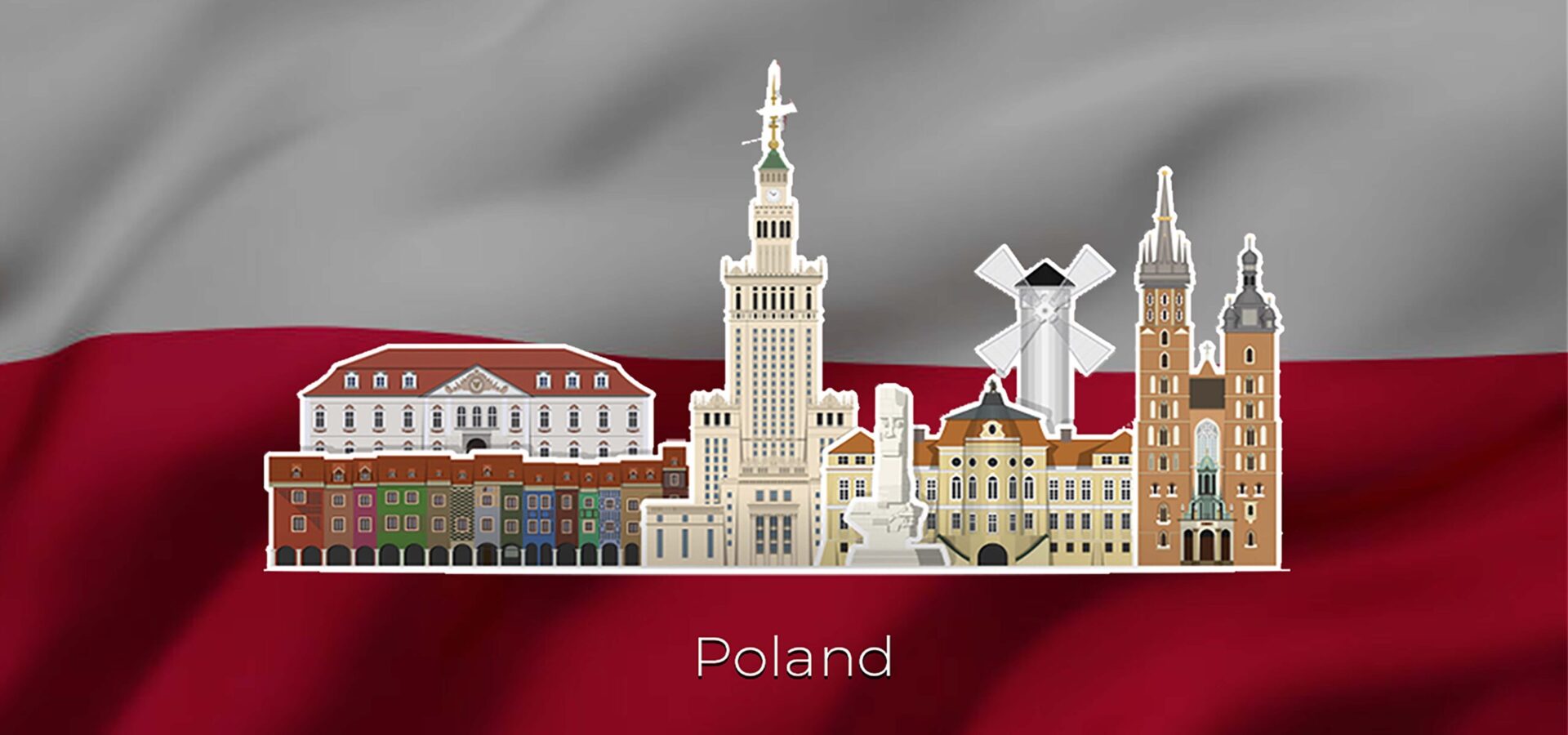
Study in Poland
| Rank | Universities |
| 1 | Jagiellonian University |
| 2 | University of Warsaw |
| 3 | Adam Mickiewicz University, Poznań |
| 4 | AGH University of Science and Technology |
| 5 | Warsaw University of Technology |
| 6 | Gdańsk University of Technology |
| 7 | Medical University of Bialystok |
| 8 | Nicolaus Copernicus University in Toruń |
| 9 | University of Lodz |
| 10 | Silesian University of Technology |
Poland is home to several places that fit the concept of typical student cities. The number of students in the city is one of the most essential evaluating factors. It is true that the greater the concentration of students, the greater their influence on the local society. Let’s look at the cities with the highest concentration of students.
- Warsaw
- Cracow
- Poznań
- Gdańsk
- Bialystok
- Toruń
Higher education in Poland consists of a three-year undergraduate (bachelor’s) program and a one-and-a-half to two-year master’s program. To apply, you must submit evidence of having completed the previous level of study and evidence of English language competency (unless you are a native speaker). Some courses may require an entrance exam or a portfolio of previous work. You may also study in Polish, where you must produce proof of language proficiency or enroll in a preparatory language course for one year.
Student visas to Poland
Residents of European Union nations do not need to obtain a visa to study in Poland. However, EU citizens must apply for a temporary residency permit upon arrival. Students from non-EU countries must get a student visa before their arrival. Upon arrival, they will also be required to apply for a three-year-long residency permit. For additional assistance and details, please contact the Polish embassy in your country or visit the Polish Ministry of Foreign Affairs website.
Costs and financing
Higher education is free for Polish nationals in Poland. If you wish to take advantage of this, you must take the same admission tests as Polish students and enroll in a course taught in Polish. Otherwise, international students are expected to pay tuition fees ranging between $2,230 and $4,180 per year at Polish state universities. Depending on your topic of study and the institution, private universities in Poland may charge up to $6,600 a year in tuition costs. To ensure that fees do not pose an undue obstacle for overseas students, universities in Poland have lately ceased charging these fees in full upfront. Note that there are relatively few accessible scholarships for international students; thus, it is likely that you will be solely responsible for covering your expenses. Check with the universities you are applying to see if any scholarship opportunities are available.
Living expenses
The amount of money you need to live comfortably in Poland will vary depending on one’s lifestyle and the city in which one resides. You would require at least 2,500 PLN (USD 650) per month to pay basic expenses, including housing. Accommodation at student residence halls is typically less expensive, ranging between 250-340 PLN ($60-$90) per month for a shared room and 430-640 PLN ($110-$160) for a single room. Alternately, a shared apartment may cost between 640 and 850 PLN ($160 to $220) per month, and a one-room studio apartment could begin at 1,280 PLN ($330) per month.
International students must have health insurance for the duration of their stay in Poland. Students from the EU are eligible for free or subsidized health care if they exhibit a European Health Insurance Card (EHIC). However, non-EU students are advised to purchase health insurance before or upon arrival in Poland.
Quick Fact Sheet
- Poland is an eastern European nation
- Poland’s capital is the city of Warsaw
- Area: 312 685 km2 Population: about 38.4 million
- Officially Polish is the official language of Poland
- The Baltic Sea borders Belarus the Czech Republic Germany Lithuania Russia Slovakia and Ukraine
- The Baltic Sea is the sea you may visit in Poland
- Poland’s currency is the Polish zloty (PLN)
- Students in Poland will require a minimum of 30000 PLN ($7820) per year to meet their living expenses
- International tuition expenses at public colleges might reach up to $4180 per year
- Poland has a television station devoted to the Pope
- More ‘World’s Strongest Man’ competition wins than any other location
- 17 Nobel laureates 9300 lakes 23 National Parks and one desert make up the U.S.
- Along with the Czechs Slovaks and Slovenes 90 percent of Poles have completed at least secondary school the highest rate in the European Union
- Nicolaus Copernicus a Polish-born astronomer was the first to propose that the Earth was not the center of the universe
- Auschwitz Treblinka and Belzec the three most notorious Nazi concentration camps were all located in Poland during World War II
- Chemicals food processing shipbuilding coal mining glass textiles and beverages are Poland’s primary industries
Ready to Take the Next Step? Contact Us Today!
Request a Consultation


